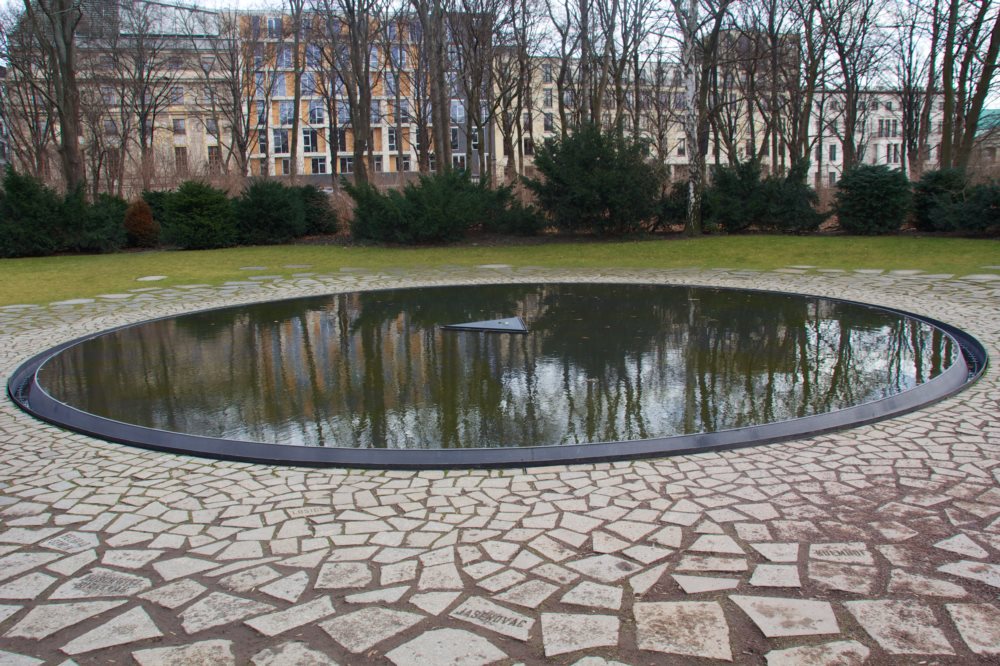International Romani Day marked around world

Pictured: wheels painted in the red, green and blue colours of the Romani nation, United Kingdom. © Damian Le Bas
INTERNATIONAL Romani Day is being marked- and the Romani flag flown- around the globe on the 8th April. Yet even as the enormous artistic and cultural contributions of Romani people are celebrated, the historical and present-day persecutions they have endured and continue to suffer are also starkly remembered.
The 8th April was officially declared as International Romani Day in Serock, Poland, in 1990, following the Fourth World Romani Congress. The United Nations and the European Union have since ratified 8th April as the global day for acknowledging both the cultural contributions of Romani people, and the serious problems they continue to suffer in the 21st century.
In 2015, the occasion is marked by a mixture of official and grass-roots events, with official statements being released by government officials and ambassadors around the world. However, those working to improve the situation of Romani people- who frequently have the worst health and educational prospects of any ethnic group in the countries in which they live- had sobering words to offer.
"There is very little to celebrate on the eve of International Roma Day, writes Rokhaya Diallo, a board member of the European Network Against Racism. "Ten to 12 million Roma people in Europe continue to be denied their basic human rights and to be the victims of racist attacks, widespread discrimination and hate speech," she said.
In America, Secretary of State John Kerry released an official government statement to mark the occasion. "On behalf of President Obama and the American people, I honor all Roma on International Roma Day," he said.
"Today we celebrate the Romani people and their rich cultural heritage. But we are also mindful of the challenges that many Roma experience in their daily lives. For centuries, the Roma have suffered at the hands of history’s tyrants. Many still face the scourge of bigotry to this day," said Mr Kerry.
In Berlin, the 8th April will be marked at The Memorial to the Sinti and Roma victims of National Socialism. Official estimates of the Romani death toll during O Porrajmos- Romani for "The Devouring"- have varied from 200,000 to 1.5 million. Modern researchers have begun to acknowledge that 200,000 Romani deaths may have been a gross underestimate.

Above: The Memorial to the Sinti and Roma victims of National Socialism outside the Reichstag, Berlin. Image: Wikipedia
SS records and other official documents did not always refer to "Zigeuner"- a German term for Gypsies- and often listed Romani people as "remainder to be liquidated". This and other factors have made it difficult for researchers to agree on a total number of Romanies murdered in Europe during the 1930s and 1940s.
In the Czech Republic, the ambassadors of the USA, UK, Canada, Germany, Norway, Austria and Sweden signed a joint statement speaking of efforts to tackle the gross inequality experienced by many Roma people in the country. "International Roma Day on 8 April is an opportunity to reflect on the position of Roma in society. There are many examples of Roma achievement. But there are still too many examples of discrimination across Europe," said the statement.
The Czech Republic, alongside Hungary and several other European countries, has witnessed extreme acts of violence against Romani people in recent years. "Although major challenges persist, we remain optimistic," said the ambassadors. "The Czech government has taken a number of important steps to improve the quality of life for its most disadvantaged citizens, including many Roma. Measures include housing subsidy reform, tackling debt, and a new approach to education. Civil society has played a key role in shaping these changes."
In Britain, Romani people and their supporters will gather at St John's Church in Waterloo on Friday 10th April at 1pm to mark International Romani Day. "The essential purpose of this year's Roma Nation Day event is to press for the adoption by the UK of an effective National Strategy that will help overcome the long borne marginalization and discrimination suffered by an estimated 500,000 Romanies, Roma migrants and Travellers," said organiser Grattan Puxon.
Speakers at the event will represent a cross section of Britain's large and diverse Gypsy, Roma and Traveller population, including representatives originally from Belarus, Czech Republic, Bulgaria, Britain and Ireland.
The European Union's Framework for Roma Integration Strategy requires all EU countries to have a plan in place to help Romani people to find a place within society. However, various member states have faced criticism for their failure to establish a proper plan of action.